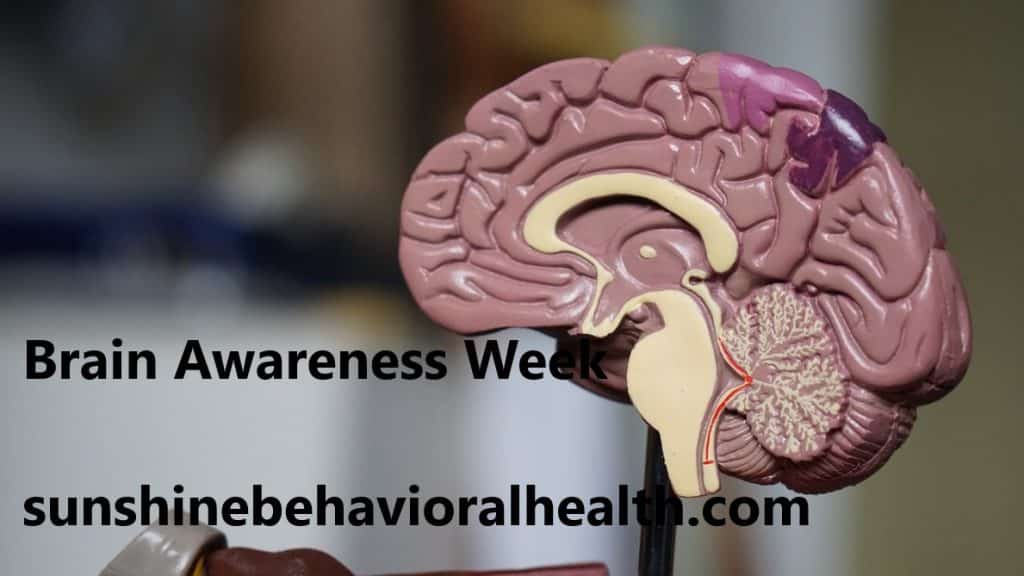
Brain Awareness Week
March 16-22 is Brain Awareness Week (BAW), which isn’t intended to make people aware of their brains but rather to be aware of the importance and benefits of brain science research. 2020 marked the 25th anniversary of this commemoration. Research on the brain holds promise for treating, preventing, or curing various brain disorders, including dementia due to Alzheimer’s disease and addiction. Brain research revealed that the brains of people who are addicted to alcohol or drugs look different in brain scans. Addiction hijacks the brain’s reward system, releasing the feel-good chemical dopamine. Continued alcohol or drug abuse rewires the brain to depend on these artificially inflated levels of dopamine while inhibiting the body’s ability to produce dopamine on its own. Even worse, the body prefers the euphoria from alcohol and drugs because it is more intense. That’s why addiction is called a chronic disease, such as diabetes and hypertension, not a moral failing. It’s not a disease you can catch from a germ-covered doorknob or a sneeze, but it represents a real, physical change in the brain that takes more than willpower to fix. It requires constant vigilance, and relapse remains a possibility for as long as you live. It’s no wonder addiction is so hard to shake. It can be done, but it’s not as simple as just saying no. Recovery from addiction takes time, work, and commitment. With cognitive behavioral therapy (CBT) or other therapies, the mind can be trained to resist the compulsion to use drugs, to find alternate ways to cope with life’s pressures and pains. With medication-assisted treatment (MAT), new drugs—naltrexone, disulfiram, acamprosate for alcohol; methadone, buprenorphine, extended-release naltrexone for opioids—may control your need to use the old drug by preventing withdrawal without euphoria. With support groups, you can learn from and help others with addiction. With awareness of how substance use disorder can affect and influence your brain, you can forgive your lapses and relapses and stop your alcohol or drug use again. For more information about Brain Awareness Week in your area, visit brainawareness.org. Sources faculty.washington.edu – Brain awareness week drugabuse.gov – What Does It Mean When We Call Addiction a Brain Disorder? health.harvard.edu – How addiction hijacks the brain sunshinebehavioralhealth.com – Reprogramming The Brain After Addiction Treatment drugabuse.gov – Drugs and the Brain brainawareness.org – Brain Awareness WeekA Message From Our CEO
Medical disclaimer:
Sunshine Behavioral Health strives to help people who are facing substance abuse, addiction, mental health disorders, or a combination of these conditions. It does this by providing compassionate care and evidence-based content that addresses health, treatment, and recovery.
Licensed medical professionals review material we publish on our site. The material is not a substitute for qualified medical diagnoses, treatment, or advice. It should not be used to replace the suggestions of your personal physician or other health care professionals.





